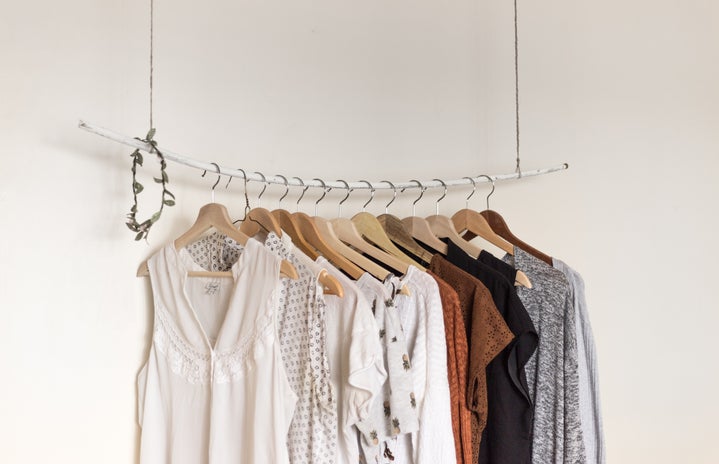Back in the day, we used to rely on fast-fashion spots like Forever 21 to get our hands on some affordable, trendy pieces. Since the pandemic, trips to brick and mortar stores have become a thing of the past. Enter Shein, the online fast-fashion retailer that is taking the world by storm.
As an international e-commerce site, Shein was founded in 2008 but has accumulated a massive following in recent years. Anything your favorite Pinterest girls or Instagram influencers are wearing, you are almost sure to find a carbon copy on Shein — and for half the price too.
The constant exposure and advertisements are virtually unavoidable, giving even the most frugal among us some FOMO. Whether you are tapping through Instagram stories or refreshing your TikTok FYP, you are bound to come across:
“5 Tops you NEED for this Spring from Shein!”, “Massive Shein Haul!”, or my personal favorite, “Use my promo code 3$5acu&?! for 10% off your order babes”
It might not seem so bad at first glance. After all, Shein gives us an opportunity to keep up with the trends without having to break the bank, so why should we be concerned?
Simply put, it is unsustainable. Fast-fashion giants like H&M, and even newcomers like Shein, cause the fashion industry to be “one of the biggest polluters in the world — second only to oil.” according to an article from the University of Queensland, Australia.
Characterized by their cheap cost of production and shorter lifespans, fast fashion creates a vicious cycle where consumers are encouraged to buy more clothes, heedlessly get rid of them all, and repeat.
The problem starts in production when fast fashion companies like Shein mass-produce items using cheap, outsourced labor. Yet, mass production and huge carbon footprints are not the only unsustainable practices here. Notorious for their unethical labor practices, retailers like Shein have been caught up in a web of controversies about their usage of sweatshops, child labor, and underpaying their employees, as reported by Mihaela Manova for Loveland Magazine.
Then, we have to consider the impacts of consumerism, something that many folks in the fashion community are noticing is the dissipation of the 20-year trend cycle. During the pandemic, we have seen this usual timeline be replaced by rapidly moving trends. Tiktok creator @oldloserinbrooklyn coins this new phenomenon as “microtrends” which were previously understood to last three to five years, but now fade away as quickly as a month. Combined with social media’s continuously expanding sphere of influence, we are being told to overconsume and feed into this unsustainable cycle, masquerading under the guise of BOGO sales and style steals.
So, what is the solution here?
There are many ways to stop participating in this unsustainable cycle and shunning retailers like Shein is certainly one of them, but there are other methods as well.
The term “ethical consumerism” gets thrown around a lot, urging us to shop sustainably and support small, local businesses instead of retail giants. However, this suggestion is honestly pretty vague.
Truthfully, the best solution isn’t to shop elsewhere but to just shop less overall. Finding other places to shop is definitely a valid alternative, but what we should be doing is rethinking the way we consume. If we do not unlearn those unhealthy shopping habits, we will still be contributing to that unsustainable cycle, regardless of where we shop from. Do not cave into the microtrends you see on your feed and try to invest in long-term pieces if you are able to.
Of course, we can not ignore the fact that folks in tight financial situations still deserve access to good quality, stylish clothing too, so if you do shop fast-fashion, try to do so only when needed. Seeing those massive $300 Shein hauls online can be tempting, but consider the implications of how cheap those items are. Are you really getting the bang for your buck once you find out that your slew of $5 halters and lettuce trim crop tops totally deteriorate after a few washes?
At the end of the day, do what you can to be a conscientious consumer! Recycle, upcycle, and do not feel pressured to keep up with every single trend.
Got any other sustainable style tips? Let us know on Instagram, @HerCampusSJSU!



